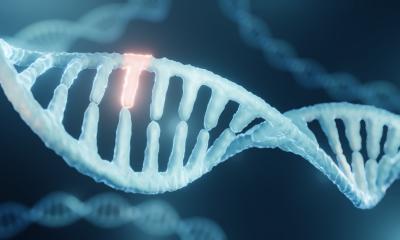© mi_viri – stock.adobe.com
News • Insights into bile production
Liver discovery could lead to better CVD treatments
University of Leeds researchers have found that the production of bile, which is vital for flushing excess cholesterol from the body, is affected by the rate blood flows into the liver via the ‘portal’ vein from the intestine.
Previous research has shown that blood flow in the portal vein increases and decreases throughout the day in response to movement, rest, and intake of foods. The Leeds team has now identified that bile production increases when blood flow in the portal vein decreases, which happens as a result of exercise or fasting. Conversely, bile production is lower when blood flow in the portal vein increases, which happens when people eat and rest. Low bile production can result in high levels of cholesterol remaining in the blood, which can contribute to the development of fatty liver disease. If untreated, this can progress to liver inflammation and fibrosis, currently affecting one in three people in the UK.
Our findings can be used by surgeons and experts in diseases of the liver and digestive system such as gallstones and liver cirrhosis, in their treatment of patients, to understand better the origins of these diseases
Laeticia Lichtenstein
These new insights, published in Science Advances, provide an opportunity for the development of new treatments to tackle cardiovascular disease and prevent the progression of fatty liver disease.
Lead researcher Dr Laeticia Lichtenstein, Lecturer in Nutrient and Metabolism in the School of Food Science and Nutrition, said: “This discovery, that the liver does not have a constant and stable function but is able to sense the changes and adjust its functionality depending on the body’s needs, is incredible. Our findings can be used by surgeons and experts in diseases of the liver and digestive system such as gallstones and liver cirrhosis, in their treatment of patients, to understand better the origins of these diseases.”
The team’s research has revealed for the first time that portal vein blood flow is linked to cholesterol levels in the blood. It shows that a pressure-sensing protein called PIEZO1 detects blood flow rate through the vein, sparking a chemical chain reaction which turns cholesterol in the blood into bile acids to be eliminated from the body.
One of the key functions of the liver is to regulate the amount of fat in the blood, so when levels are elevated, fatty liver disease can develop. This can damage the liver and lead to more serious conditions including cirrhosis, liver failure, and liver cancer.
Cholesterol is a type of fat that is essential for the body’s normal functioning and is found in all the cells of the body. There are two types - ‘good’ which is helpful for the body’s functioning, and ‘bad’ which can build up in arteries, increasing the risk of heart disease and stroke. High cholesterol levels may have a genetic basis or be linked to some medications and health conditions but are also associated with lifestyle factors including diets high in saturated and trans fats; a lack of physical activity; obesity; smoking and excessive alcohol consumption. First-line treatments include following a healthier lifestyle, but patients can also be prescribed medications such as statins to reduce so called ‘bad’ cholesterol. However, some patients may have reduced mobility or suffer from side effects from statins. Furthermore, a better understanding of other factors, like blood flow and its impact on the regulation of fats, is needed to improve how medications work.
Senior investigator Professor David Beech from Leeds’ School of Medicine said: “Laeticia’s exciting work opens a potentially important new avenue for clinical interventions in the increasing global problem of liver dysfunction.”
Source: University of Leeds
27.10.2024





